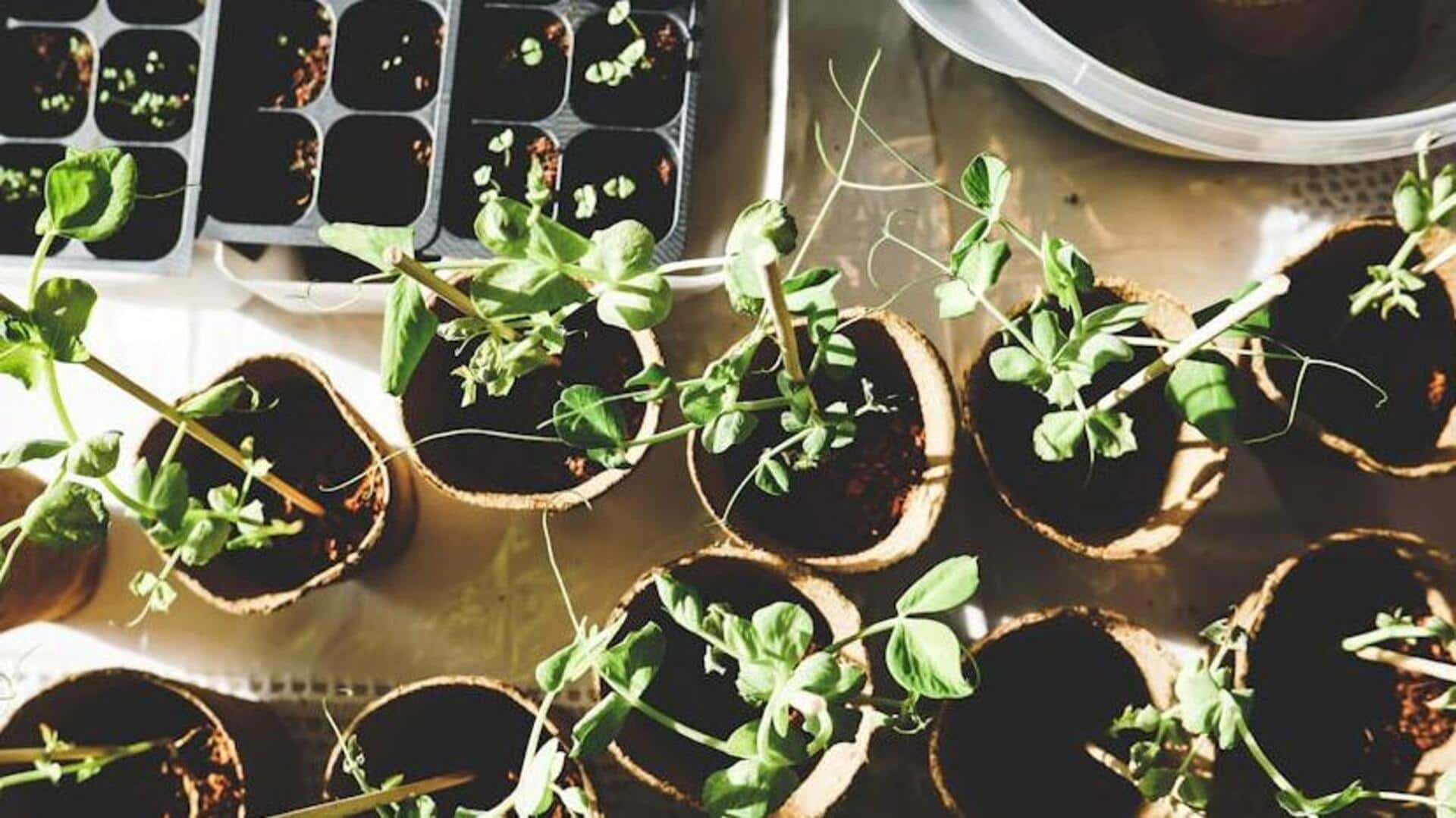
Mastering efficient urban gardening like a pro
What's the story
Urban gardening is booming as more people strive to grow their own food and beautify their living spaces, all while navigating the constraints of limited urban space. This article provides practical tips on maximizing small spaces for gardening, choosing the right plants, and maintaining your garden with ease for optimal productivity.
Plant selection
Selecting the right plants for your space
Choosing the right plants is key to urban gardening success. Opt for varieties that thrive in limited spaces and need less sunlight if your area doesn't get full sun. Herbs like basil, cilantro, and mint are great options. And, for vegetables, cherry tomatoes, peppers, and leafy greens like spinach and lettuce work well. These choices are not only well-suited for container gardening but also have a short growing cycle.
Vertical gardening
Utilizing vertical space wisely
In urban settings where horizontal space is limited, going vertical can significantly expand your gardening real estate. Utilize wall-mounted planters, hanging baskets, or even build a trellis for climbing plants such as beans and cucumbers. Not only does this save space, but it can also transform a boring wall into a vibrant, green centerpiece for your home.
Containers
Incorporating container gardening
Container gardening is perfect for city life. You can easily move your plants around to get the most sun and keep pesky bugs at bay. Make sure containers have good drainage holes. You don't want your plants sitting in soggy soil - it's bad for their roots. Think about using self-watering containers. They can save you time and help your plants stay hydrated, especially when it's hot out.
Water efficiency
Optimizing water usage
Water efficiency is crucial in sustaining an urban garden without skyrocketing your water bill or squandering resources. Harvest rainwater: Collect it in barrels or similar containers. Rainwater is ideal for watering plants as it lacks the chlorine present in tap water. Mulch around your plants: Mulching helps maintain soil moisture and can drastically cut down evaporation rates.
Soil management
Choosing soil and fertilizers carefully
Choosing the right soil mix is crucial for healthy plants and a bountiful harvest. For container gardens, opt for a lightweight potting mix that ensures good drainage while retaining sufficient moisture for root uptake. Including compost in your mix gradually supplies nutrients, eliminating the need for chemical fertilizers that can harm plants if overused.